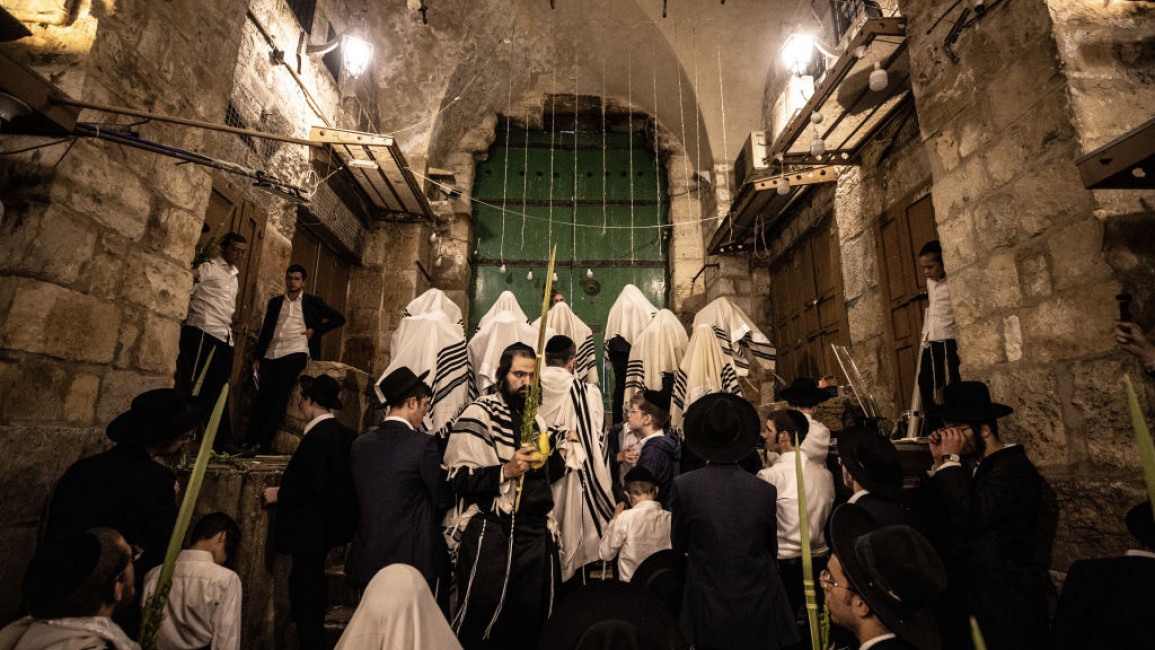Over 800 Israeli settlers storm Al-Aqsa compound during Jewish Sukkot holiday
More than 800 Israeli settlers stormed the Al-Aqsa Mosque compound in occupied East Jerusalem on Thursday morning under the protection of Israeli forces.
Rabbis, heads of settlement associations, and far-right university lecturers were among 832 people who forced their way into the religious site compound, a source in the Islamic Endowments Department in Jerusalem told The New Arab's Arabic sister site Al-Araby Al-Jadeed.
Israeli forces imposed severe restrictions on Muslim worshippers entering Al-Aqsa and those under 60 were prevented from accessing the site.
It comes during the Jewish religious holiday of Sukkot, which started on 29 September and ends on Friday. The holiday has seen thousands of Israeli extremists storm the Al-Aqsa compound, with almost 1,500 entering the site on Monday.
Israeli extremists also continued on Thursday to hold provocative marches both inside Jerusalem's Old City and outside its walls, attacking Palestinians and their property.
They also beat and spat at journalists in a market area near Al-Aqsa, where shops were forced to close for the sixth day in a row.
The Old City is home to Al-Aqsa as well as the Western Wall and the Church of the Holy Sepulchre.
The Al-Aqsa compound is the third holiest site in Islam and the most important Muslim place in Palestine.
Some Jews believe that the compound is the site of a Jewish temple believed to have existed there in ancient times.
Many Jewish extremists wish to either destroy the mosque and replace it with a temple or divide the site between Muslims and Jews in terms of time and space available.
While non-Muslims can visit the sacred site, prayer at Al-Aqsa is reserved for Muslims alone under the longstanding status quo agreement governing the compound.



